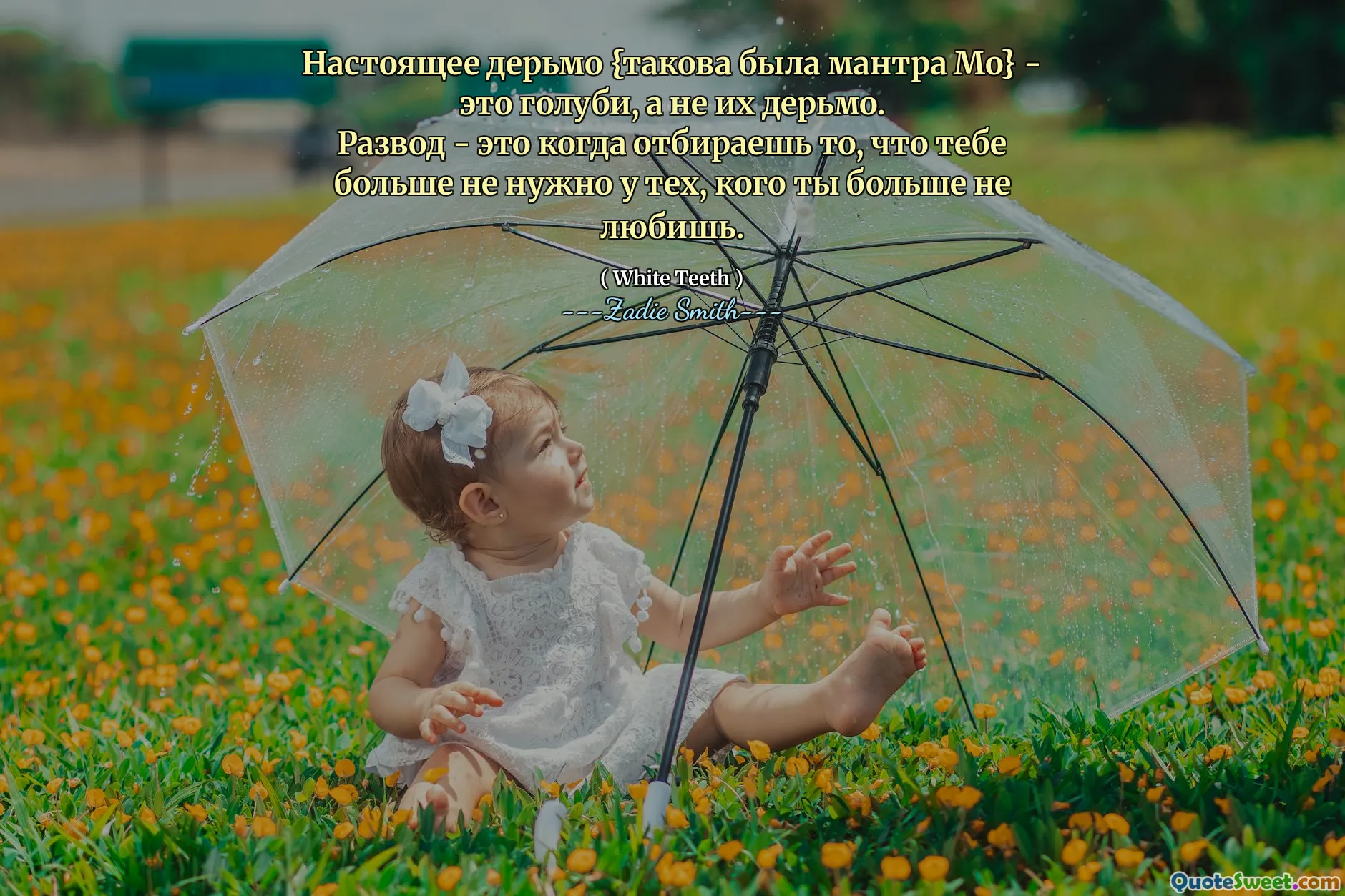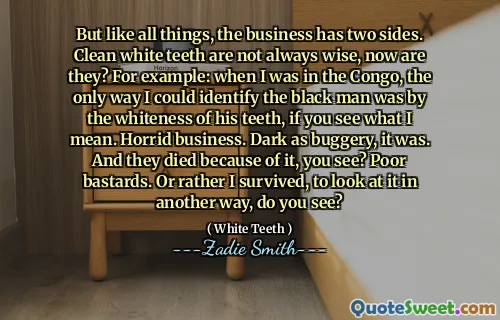
"The real shit {that was Mo’s mantra} is pigeons, not their shit. Divorce is when you take away what you no longer need from those you no longer love."
This quote encapsulates a raw and somewhat cynical perspective on relationships, particularly the concept of divorce and emotional detachment. It juxtaposes two ideas: the idea of "real shit," metaphorically illustrated by pigeons and their droppings, and an interpretation of divorce as an act of reclaiming what is personally valuable after love has dissipated.
The phrase "the real shit is pigeons, not their shit" can be unpacked as a commentary on perception and reality. Pigeons, often seen as nuisances or urban pests, are the actual beings, while their droppings are merely an unpleasant byproduct. This metaphor suggests that individuals, like pigeons, have intrinsic value or essence beyond the negative or superficial aspects associated with them. It calls attention to looking beyond surface-level judgments to understand what truly matters.
Transitioning to the subject of divorce, the quote poignantly describes it as an act of separation and detachment, where individuals reclaim what they no longer need from those they have ceased to love. This description strips the commonly romanticized or even legally complex nature of divorce down to its emotional core—the dissolution of intimacy and the subsequent redistribution of remnants that once held meaning but are now relics. It evokes a sense of finality and pragmatism, reflecting how breakups force a re-evaluation of relationships and possessions, both tangible and intangible.
From the perspective of human experience, this touches on the often unspoken, difficult realities of ending relationships. Divorce, beyond legal proceedings, is about the emotional and psychological process of untangling lives. It involves grieving lost connection, reassessing identity, and rediscovering oneself independent of another person. The quote’s stark frankness eschews sentimentalism, presenting a view that might resonate with those who have experienced the complexities of love lost.
In the broader context of identity and human attachments explored in literature like Zadie Smith's "White Teeth," although the quote is not from Smith, it intersects with themes she examines—such as cultural identity, personal transformation, and the messy, imperfect nature of human relationships. The quote’s simplicity belies a profound truth about what we hold onto and what we are willing to let go of, which is central to the process of growth and understanding the self.







